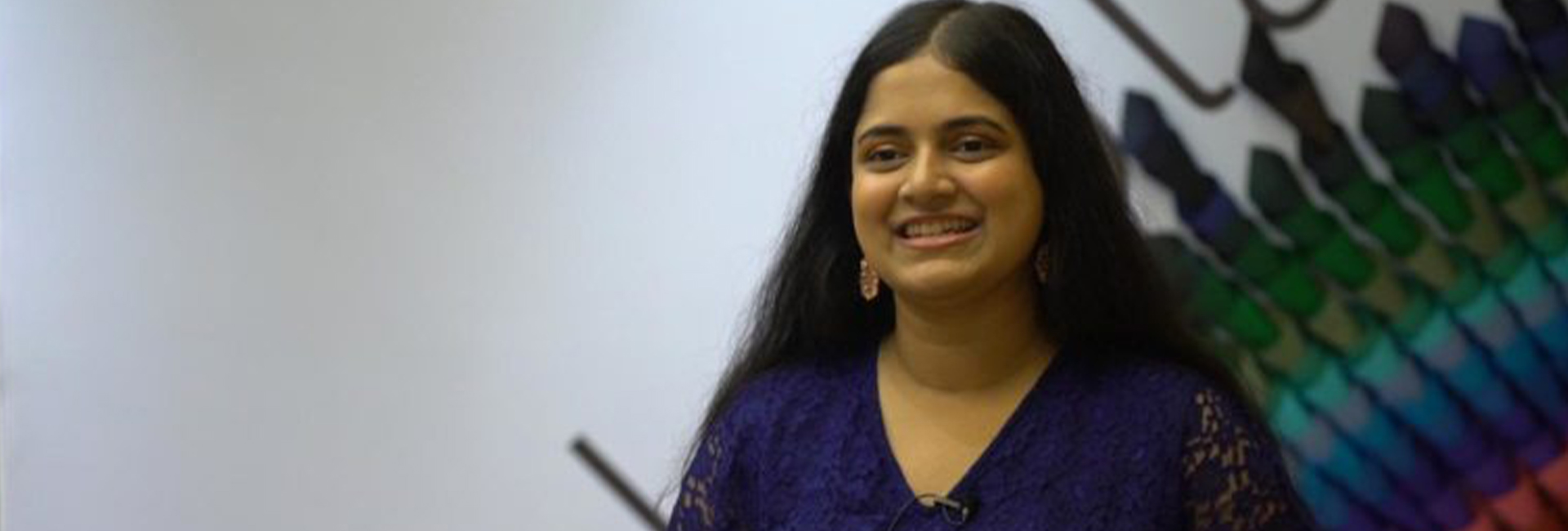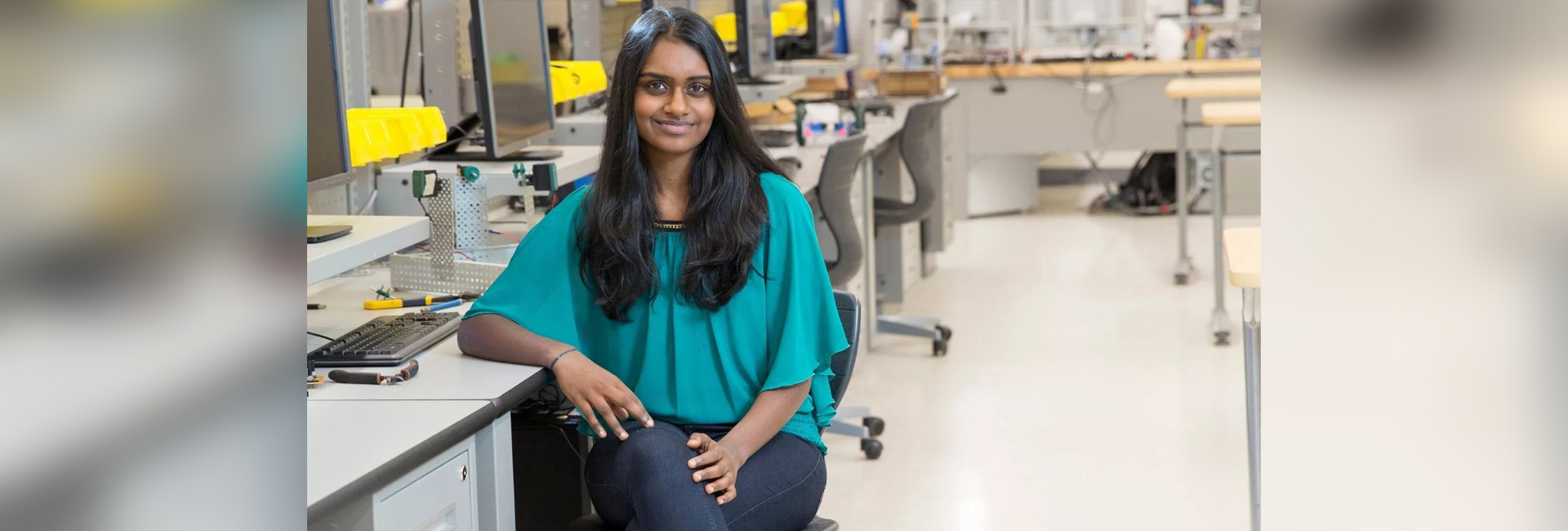(January 21, 2023) “Creativity is thinking up new things. Innovation is doing new things.” These words of Theodore Levitt stand true for the brigade of Indian teen innovators who are helping solve the biggest issues, one problem at a time. From saving the earth to creating social impact, this new generation of precocious youth is solving the problems of today with ambitious, ground-breaking technology.
Global Indian turns the spotlight on such young innovators who are breaking the glass ceiling with their innovations.
Zain Samdani
As a 15-year-old visiting India from Saudi Arabia, Zain Samdani had no idea that this family vacation was set to change the course of his life. A meeting with his partially paralysed distant maternal uncle left him “shocked.” In the era of technology, seeing his uncle dependent on others for every small thing was nothing short of a horror. That encounter nudged this robotics enthusiast and innovator to develop Neuro-ExoHeal, an exoskeletal hand rehabilitation device that utilises neuroplasticity and Azure technology to help patients with neurological damage recover faster at an affordable price. The innovation not only left Google CEO Sundar Pichai impressed but also made the 21-year-old win Microsoft 2022 Imagine Cup World Championship, which is considered as the ‘Olympics of Technology’ with more than 10,000 participants from 160 countries.
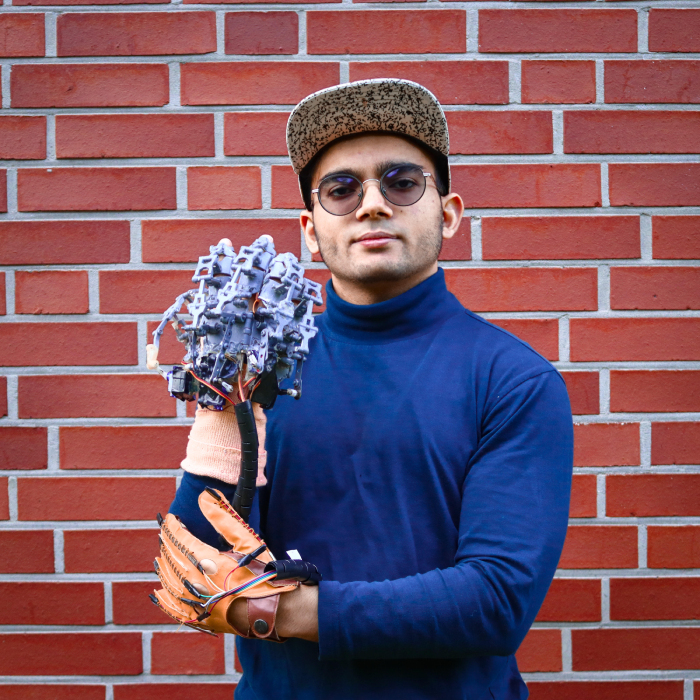
Zain Samdani
“Having been interested in robotics from a very young age, I started working with prosthetic designs in 2013. But I realised that a cosmetic prosthetic hand could cost between ₹1-₹2 lakh while a robotic prosthetic hand was available anywhere between ₹40-₹50 lakh. I knew that affordability was the key. But the meeting with my uncle only strengthened my passion to find an affordable solution,” Zain told Global Indian. The earliest prototype made him one of the 16 global finalists at the Google Science Fair in 2016, and later the advanced version recreated the magic in 2019. “My uncle could feel the sensation on the very first day of using Neuro-ExoHeal. It’s something that otherwise takes weeks or months to achieve.”
Jui Keskar
India is home to 0.58 million persons living with Parkinson’s disease, and Pune-based inventor Jui Keskar’s abode was no different. Having seen her uncle battle the illness for the past nine years with incessant rounds to the hospitals, she was keen to help him. But how? The question gnawed away at her, until the 2020 lockdown came as a blessing in disguise for the teenager, giving her the time to dive into research and find a potential solution to helping her uncle. While scrolling through heaps of data on the internet, the innovator realised that the medication depended on the tremor history, and there was no device to measure them.
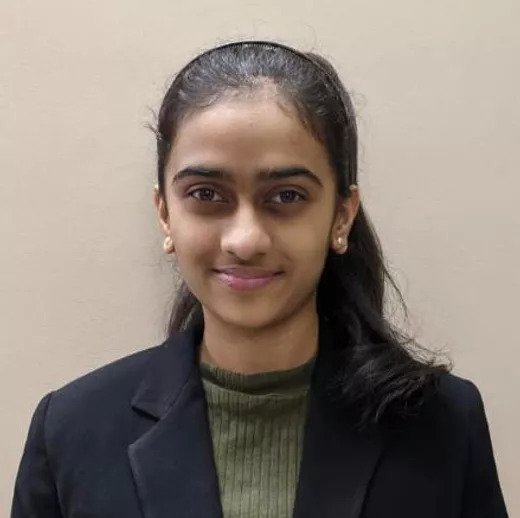

Jui Keskar
That was a turning point for the Pradhan Mantri Rashtriya Bal Puraskar 2022 recipient as she decided to develop a wearable device to measure tremors and analyse data to chalk out a customised medication for the treatment. After months of hard work, the innovator nailed the solution in JTremor-3D, a wearable device that enables the tracking of tremors every 1/10th of a second in a person’s body, and stores the data in a Cloud database, which is then sent to the doctor after the information is processed. Embedded with sensors and accelerometers and gyro meters, this device helps in producing the data that can help determine the course of action for a patient.
- Follow Jui Keskar on Linkedin
Nikhiya Shamsher
A hospital visit for her project, Compassionate Clowns, changed Nikhiya Shamsher’s life forever. She was just 14 when she saw a man who had had half his jaw removed due to oral cancer. Upon inquiring about him, the nurse affirmed that he was one of the few lucky ones to survive. Unable to get the ghastly image out of her head, she began researching on oral subject and found staggering statistics. Five people die every hour because of oral cancer, and India itself accounts for almost one-third of the cases in the world. It’s the late diagnosis that accounts for high mortality rate.
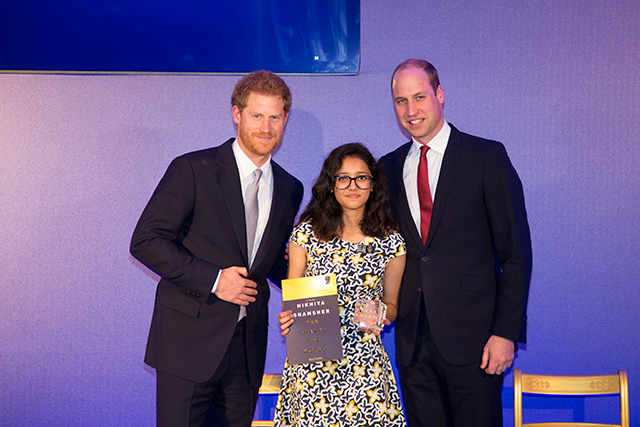

Nikhiya Shamsher receives Diana Award for Prince Williams and Prince Charles
Perturbed by the condition of the patients, she found her eureka moment in QuitPuff – a diagnostic device that could help early risk detection of oral pre-cancer and cancer. Explaining the process of its functioning, the innovator told Forbes India, “It is a simple principle, it detects a biomarker present in the saliva, and changes colour. The more the biomarker, the darker the colour will be, which means the higher the risk of developing oral cancer.” The device contains QuitPuff reagent which changes colour after an individual spits in it and heats it for 15 minutes. One can compare the colour to the colour chart to understand the risk stage. Priced at ₹38, QuitPuff has already been tested on more than 500 patients.
- Follow Nikhiya Shamsher on Linkedin
Siddharth Mandala
He was 12 when the infamous Nirbhaya rape case shook the nation in 2012. People took to the streets asking for justice, and his mom was one among them. Curious about the protests and confused about the word ‘rape’, Siddharth Mandala joined his mom for one of the protests. After surfing the net, he understood the gravity of the issue and decided to do everything in his capacity to prevent sexual assault. This awareness led to the birth of Electroshoe, a small badge that can be clipped onto any footwear, or worn as a ring or pendant and can be easily activated during any threatening situation by pressing. “It pulls out two sharp pointers, mimicking the mechanism of a stun gun and pierces through clothing, and even skin to electrocute the attacker,” explains Siddharth. He took two years to build a working prototype and another three years to create a market-friendly product by interviewing over 500 women across India and California.
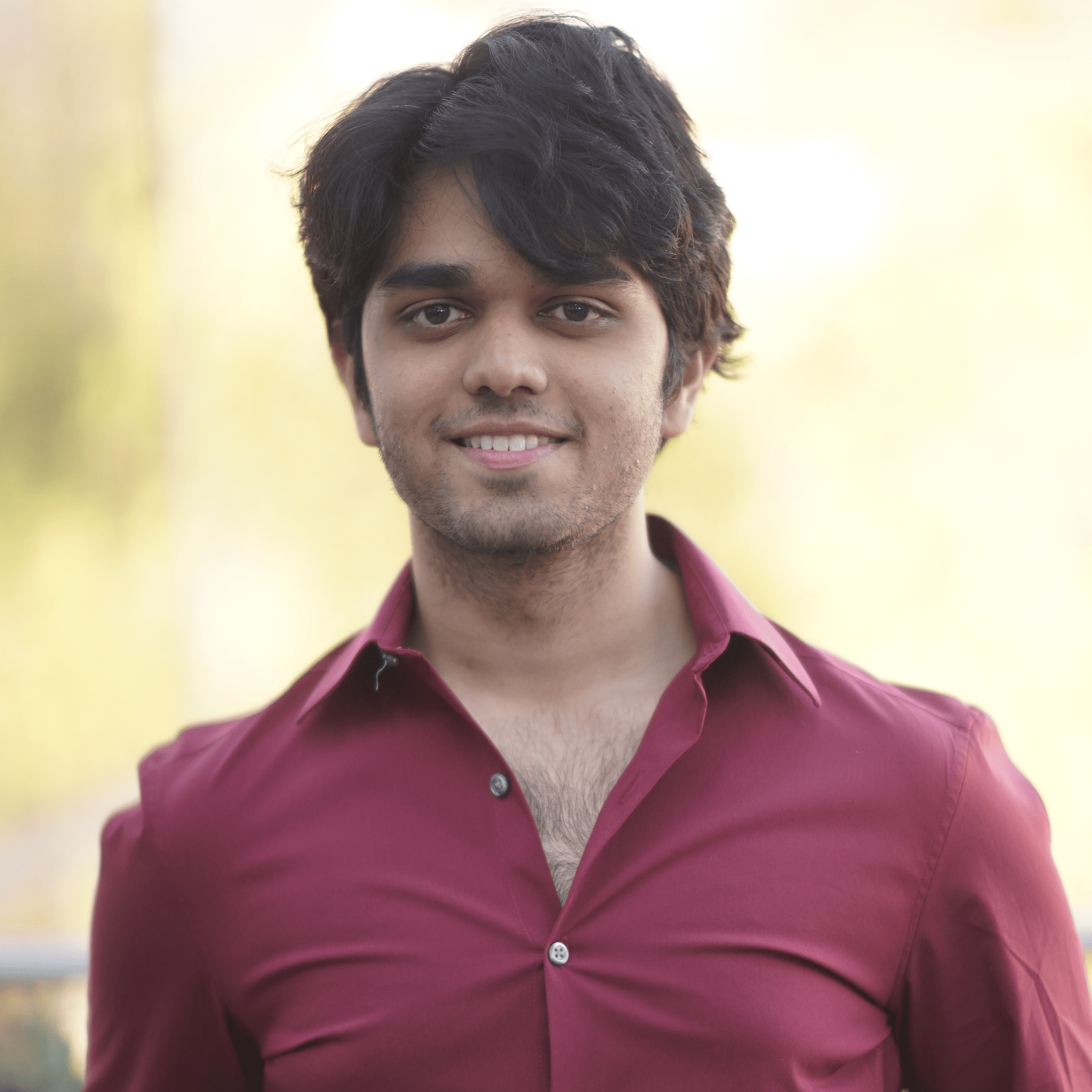

Siddharth Mandala
The 21-year-old reveals Electroshoe activates an alarm sound to alert nearby police stations and sends location to family members. “It can even sense angst in a conversation, and can raise alarm,” the entrepreneur told Global Indian. With a built-in solar plate, it recharges itself when exposed to sunlight. “The idea was that it should be something that women can carry with them easily all the time.”
- Follow Siddharth Mandala on Linkedin
Vinisha Umashankar
“We have every reason to be angry. But I have no time for anger. I want to act. I am not just a girl from India. I am a girl from Earth and I am proud to be so.” These words of the 15-year-old innovator and environmentalist Vinisha Umashankar received a thunderous standing ovation at the United Nations Climate Change Conference (COP26) in Glasgow in 2021. The teen from Tamil Nadu, who was the only school student to earn a spot among the finalists for The Earthshot Prize 2021, was invited by Prince William, The Duke of Cambridge, to speak at the World Leaders’ Summit at the COP26 in November 2021.
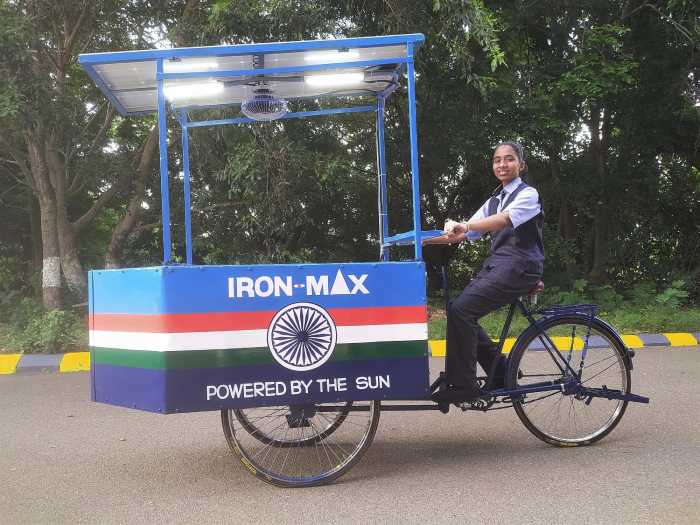

Vinisha Umashankar with her solar-powered ironing cart.
At 12, the teen innovator started the idea of inventing a solar-powered ironing cart while accompanying her mother to deliver ironing clothes. Seeing six ironing vendors in her neighbourhood, she realised how charcoal burning is a threat to the environment. She found her eureka in solar power which effectively substitutes charcoal. The innovation won her the Children’s Climate Prize in 2020 helped her get a slot as a finalist at The Earthshot Prize in the Clean Our Air category in 2021. “I was happy that environmental innovations like a solar ironing cart got due recognition. It can play a crucial role in reducing environmental damage and climate change. I hope my innovation motivates students to innovate on products that could help protect the environment for future generations. I am happy that the solar ironing cart is my little contribution towards an ambitious goal,” she told Global Indian.


